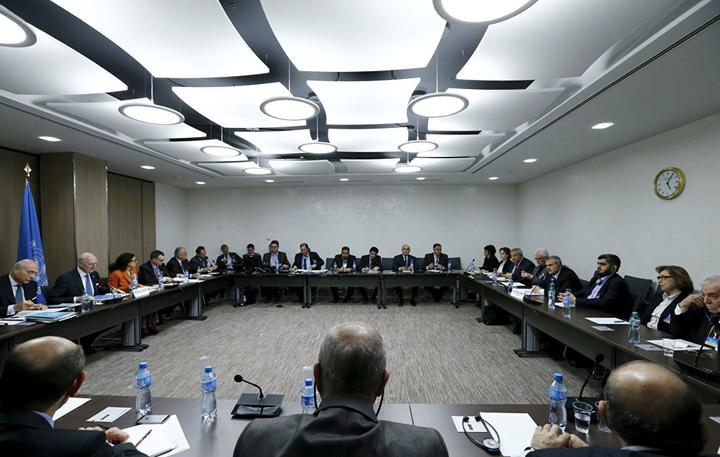April 15, 2016
By Amir Taheri

with U.N. special envoy Staffan de Mistura hosting a delegation from
the main opposition group.
As the United Nations prepares to host another round of “peace talks” in Syria, signs are emerging of a split between Tehran and Moscow regarding the future of the war-torn nation.
One sign of the split came on Sunday when Ali-Akbar Velayati, senior adviser to the “Supreme Guide” Ali Khamenei, declared Iran’s “determination” to maintain President Bashar Al-Assad in power in Damascus. Reacting to reports that Moscow may have reached a secret deal with Washington to ease the Syrian president out over a period of months, Velayati said Assad was “a red line for Iran”.
On Monday, the daily Kayhan, reflecting Khamenei’s views, shed more light on the perceived split. In its main editorial, Kayhan said that although Russia had “great weight” in Syria’s “national strategy”, it was not in a position to impose its will. “Over 50 years, Syria was close to the Soviet Union and then Russia, but never became part of the Soviet bloc,” the paper said.
The editorial cites the 33-day war between Israel and the Lebanese branch of Hezbollah in 2006 as an illustration of Syria’s refusal to toe Russia’s line. In that war, Kayhan claims, Russia had asked Al-Assad not to supply Hezbollah with Russian-made weapons. Assad ignored the Russian warning because Iran had asked him to send arms to Hezbollah.
Kayhan also claims that during the Israel-Hezbollah war, Putin allowed a number of Jewish Russian officers to fight on the Israeli side, especially around the Bint-Jubail town. At the same time, Syrian officers and logistics experts were operating on the side of Hezbollah, the daily claims. In other words, Russia and Syria were on opposite sides in that war.
“Thus there are some strategic differences between Damascus and Moscow,” Kayhan says. “However, there are no such differences between Tehran and Damascus. “Kayhan adds that “Syria’s dependence on Russia is not absolute. Iran has been supplying the bulk of the weapons that Syria needs for a long time now.”
The editorial continues: “Russia has influence in Syria because it has sided with Iran, the Syrian government and the resistance front in general. If Russia “leaves that side, it will become a marginal player like Syria or England.”
Kayhan also claims that Russia entered the Syrian war last October in accordance with a plan prepared by the Islamic Revolutionary Guard in Iran presumably conveyed to Putin by Quds Corps Commander General Qassem Soleimani ostensibly during a visit to Moscow.
According to Kayhan the plan conveyed to Putin envisaged Russian military participation in Syria for five months, a period that ended last month when Moscow announced its withdrawal. “Iran’s assessment is that Russian withdrawal, even if all forces leave, would be better for Syria,” the paper asserts.
Kayhan says that Iran didn’t make so many sacrifices and offer so many martyrs in Syria for five years to allow it to become a chip in a deal between Moscow and Washington. “The past 30 years have shown that whatever deal is made, by excluding Iran, regarding the Resistance Front nations (i.e. Lebanon, Syria and Iraq), they have been doomed to failure,” Kayhan adds.
Khamenei also claims that Assad “knows that he owes the survival of his regime to Iran.”
Kayhan then asserts that “Unlike Russia which has nothing of its own on the ground in Syria, Iran and Hezbollah right now control a part of Syrian defense lines at the center, in the south and in the north. Thus, if Russia makes a deal with a third party without Iran’s approval, that deal would be doomed.”
Kayhan claims that Russia is playing “a two-faced” game in Syria. Iran should use the face that suits its strategy and counter the face that geos in the opposite direction.
Amir Taheri has been a columnist for Asharq Al-Awsat since 1987.
